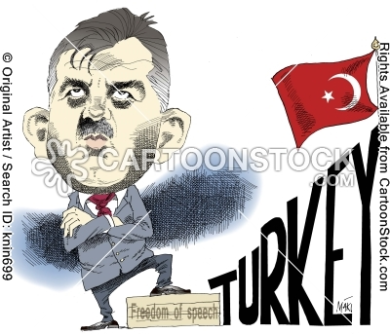Has the Syrian government been effective in controlling and influencing the media? Yes. Has the Syrian government been effective in maintaining their oppressive state because of their control over the media? Yes. Interestingly enough, Syria provides the right to free speech in their constitution! So how are they (the government and the government’s allies) getting away with all the unjust censorship they employ? Well, they arrest journalists, forbid foreign journalists from reporting inside the country, almost all the newspapers are run and owned by the regime or it’s allies and they forcibly restrict coverage of the ongoing crisis, just to name a few. In this post I will discuss the extent of effectiveness the Syrian government has had in recent years on censoring, and thereby controlling, the media.
The Syrian Civil War has been an ongoing crisis since 2011. It has been reported that since the beginning of this conflict over 100,000 Syrians have been killed. Yet, the Syrian government has been doing everything possible to keep news of the conflict from being reported nationally and internationally. Falsities about the war and propaganda are prevalent throughout the country and are being propelled by regime-run outlets and sources. The reporters from these state-run stations and the like continually call the opposition forces “terrorists” and “radicals”. Al-Assad has also instituted a “foreign media blackout”. This “blackout” has prohibited almost all foreign journalists from entering, and therefore reporting on, Syria. In 2012 the government offered 70 visas to foreign journalists, however the stipulation for these visas was that the reporters were required to be escorted around by representatives from the state. These representatives also determined what the journalists could cover. The effectiveness of this ban has been a success for the government because it has thwarted the amount of information coming out about the seriousness of the civil war and therefore has prevented the truth for circulating inside the country in addition to outside the country.
An example of national journalists being oppressed can be seen in an incident that occurred in February of 2012. Government agents invaded the Syrian Center for Media and Freedom of Expression, which is a NGO based in Damascus. During this raid the government forces arrested the head of the organization and 13 other employees. Another incident of journalist persecution took place in July of that year. This incident consisted of a radio tower being demolished in Aleppo. The government perceivably saw this radio station as a threat because university students and staff members created it.
In class we have seen how large a role ownership can play in allowing the government to censor pertinent news. Syria is an example of this. In the region the government and “allied business men” and responsible for the ownership of most newspaper publishing houses and they use this control to greatly control the media. The censorship of foreign and domestic news is controlled and monitored by the Ministry of Information and the Ministry of Culture and National Guidance. The regime propagates their control by also placing heavy censorship on T.V. networks and the radio. When the almost the entirety of mass media is being censored it is easy to see how simple it is for the Syrian government to keep its peoples ignorant of reality.
What makes the Syrian so “successful” in influencing and controlling the media is their consistent suppression of basic human rights (i.e. the right to factual knowledge etc.) with little to no consequences. As the civil war wages on it will be interesting to see if the Syrian government maintains their power or if it falters in the age of uprisings as it has in other MENA countries.



 (photo)
(photo) 










